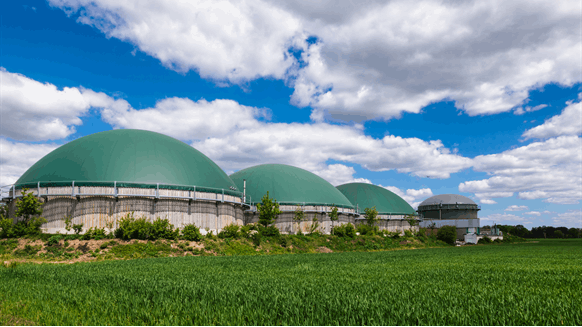
Eni SpA’s plan to set up plants to source approximately 700,000 tons of biofuel feedstock from Africa by 2026 will cost as much as EUR 700 million ($735 million), according to a senior company official.
The plan has already received its first cargo of vegetable oil from the 15,000 ton-per-year Makueni Agri Hub in Kenya. It will now expand across the continent with an additional project in Mombasa, Kenya, as well as plants in the Republic of Congo, Angola, Mozambique and Ivory Coast.
“This agro-feedstock is one of the levers” for Eni to reach its net zero target by 2050, Guido Brusco, the company’s chief operating officer of natural resources, said in an interview, adding thats it’s also a step to ensure supply for its biofuel refineries in Italy.
Like many oil companies, Eni is trying to diversify its suite of products as pressure grows to reduce the emissions from fossil fuels that are driving global warming. Its program, based on the belief that biofuels are a way to decarbonize long-distance transport, ties in with a push across Africa to use the continent’s abundant natural resources to benefit from the global green transition.
Africa is expected to supply just under a quarter of Eni’s feedstock needs, which it estimates at about 3 million tons by 2025. There are plans to further expand the annual production of feedstock, much of it from castor oil plants, in Africa to more than 1 million tons by 2030, by which time Eni’s refining capacity will be more than 5 million tons a year. Further expansions are planned beyond that and plants may also be set up in Kazakhstan.
In addition to its initial plant, Eni is close to completing a 55,000-ton-per-year vegetable oil plant in Mombasa.
By 2026 it expects to have capacity of at least 200,000 tons each in Kenya and Congo Republic, 100,000 tons each in Mozambique and Angola and 50,000 tons from Ivory Coast.
The program will see more than 700,000 small-scale farmers benefiting and crops to provide the feedstock will cover 1.2 million hectares (2.97 million) acres of degraded and marginal land, Eni said.
Eni has “an edge over competitors, which is their feedstock advantage,” AllianceBernstein LP analysts said in a note to clients on Sept. 29. There is “low land use competition in Africa,” they said.
Initially much of the feedstock Eni needs will come from Italy and the US, but ultimately a greater portion is expected to come from Africa and parts of Asia, Brusco said. The plan is to get 30 percent to 35 percent of the company’s needs from the agri-hubs it controls and the rest from other producers or sources such as used cooking oil.
Diversified Economies
Currently the feedstock will be converted into biofuel at refineries converted from crude oil in Venice in 2014 and in Sicily in 2019 with applications including renewable diesel and aviation fuel. The company began planning to start sourcing from Africa in 2021.
The plans have been welcomed in African nations because “they are very well aligned with their strategy to diversify the economy and also to provide employment,” Brusco said. “This is a quite a labor intensive activity and would provide jobs and security of revenue for farmers because ENI would undertake long-term commitments with them.”
The use of biofuels for transport in Africa could be a bridging technology as the continent moves from the use of fossil fuels to electric transportation, Brusco said. Currently the grid across much of the continent is too poorly developed to support the widespread use of electric vehicles.
“In the long term the electric vehicle, particularly in light transportation, may be the final solution. For the heavy trucks this is the best solution in term of environmental footprint and from an economic point of view,” he said of the use of biofuels.

